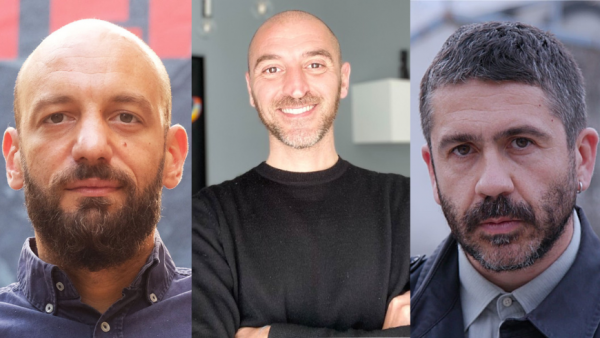After nine years of relentless attacks by the government of Prime Minister Viktor Orbán, Hungary’s few remaining independent media outlets are increasingly relying on legal challenges to keep their heads above the water. The International Press Institute (IPI) talked to two of the people and organizations mounting these creative legal fightbacks: a Hungarian civil rights NGO and an opposition MEP in Brussels.
The crowning achievement of Orbán’s media policy was born in late 2018, with the establishment of Közép-Európai Sajtó és Média Alapítvány (KESMA – Central European Press and Media Foundation). KESMA became the country’s largest media company in a few hours, after almost all government-friendly media owners generously transferred their newspapers, magazines, TV and radio stations and news websites to the foundation.
The establishment of KESMA should have been approved by the Hungarian competition authority, but the government avoided this requirement by declaring the foundation a matter of “national strategic importance in the public interest”. This manoeuvre was sufficient to protect KESMA, which has at least 476 media outlets to its name, from any legal scrutiny.
In January 2019 the establishment of KESMA was challenged in court by Szabad Pécs, a news website based in Pécs, a city in southern Hungary, and one of the very few independent media outlets outside of Budapest. Szabad Pécs is represented by the Hungarian Civil Liberties Union (HCLU), a respected NGO.
“The regional press is the worst hit by KESMA, since it owns almost all of the regional newspapers and news websites single-handedly”, HCLU’s executive director, Stefánia Kapronczay, told IPI. “We approached several regional outlets, but unfortunately only Szabad Pécs was willing to start legal proceedings.”
HCLU is employing a multi-pronged approach. “We will also turn to the National Media and Infocommunication Authority, but right now we are focusing on the competitive aspects of the case”, Kapronczay explained. “HCLU’s position is that the Hungarian Competition Authority’s decision to approve the establishment of KESMA is against the law, and that the government’s declaring KESMA a matter of national strategic importance was unconstitutional. They should have provided clear reasons to support this, but they gave none.”
While HCLU’s focus is traditionally on free speech and not the free market, in this case the second is a prerequisite for the first. Given that there are very few independent institutions left, Kapronczay said, civil rights NGOs had to be “creative”.
Kapronczay said she still had faith in the Hungarian judiciary. “Hungarian courts still make good and independent judgements. Even recently, the HCLU has won cases against local governments discriminating against the Roma minority. We know that even if we win this case, KESMA might survive in one form or other, or that the Constitutional Court might rule against us, if the judge refers to the case to it, which is what we want to achieve. But we still think this is a fight worth fighting, and it is HCLU’s duty to take up these legal fights”.
Competition complaint in Brussels
Another legal fight in defence of media independence in Hungary is being led by Benedek Jávor, an MEP representing the small, leftist Párbeszéd (Dialogue for Hungary) party. Jávor’s efforts began in 2016, when he submitted a complaint to the EU’s competition commissioner, Margrethe Vestager, over Hungarian state aid to supposedly public service media.
“EU law allows member states to fund public service broadcasters, but only when the money is used for programmes that have public service value”, Jávor told IPI. He says this is not the case in Hungary, where huge amounts of money are spent, for example, on the broadcasting rights of Champions League games and Formula 1 grand prix races.
Jávor’s partners when submitting the complaint were Mérték Médiaelemző Műhely, an NGO, and Klubrádió, one of the few radio stations not owned by KESMA. “That complaint was a bit of a test, because this (state aid to PSBs) is an incredibly murky area that the European Commission has not really dealt with”, Jávor said. “Progress is slow and European regulation is ill-defined.”
In early 2019, troubled by the establishment of KESMA, Jávor submitted another complaint to the Commission regarding the distortion of the Hungarian media market through state-controlled advertising.
“The state has become the largest advertiser in Hungary and when they place advertisements according to political preferences and interests and not fair metrics, they are obviously distorting the market and infringing competition rules”, Jávor explained.
Jávor, who has personally met Vestager to explain his case, expects EU competition authorities to act on the complaint, but he knows this will take some time. “It will take months for them to process the complaint, then they have to turn to the Hungarian government for answers, and this exchange should take somewhere between six months and a year.”
If the European Commission decides that the Hungarian government violated competition rules, then all the state aid and/or public money spent on advertising would have to be paid back, which Jávor would “shake the foundations” of Hungarian state-owned and government-friendly media.
Jávor is realistic enough to know that not even a favourable decision from the Commission would solve the plight of the Hungarian media market, though it might be a start. “I’m sure they (the Hungarian government) would come up with something, but not implementing the Commissioner’s decision could really put them in trouble.”
And while turning to the international authorities to solve domestic issues may be a last resort, Jávor believes there are no options left. “We know that the Hungarian Competition Authority would never decide against the government and we know that the Media and Infocommunication Authority hasn’t done anything since 2010 to stop the dismantling of media freedom.”



